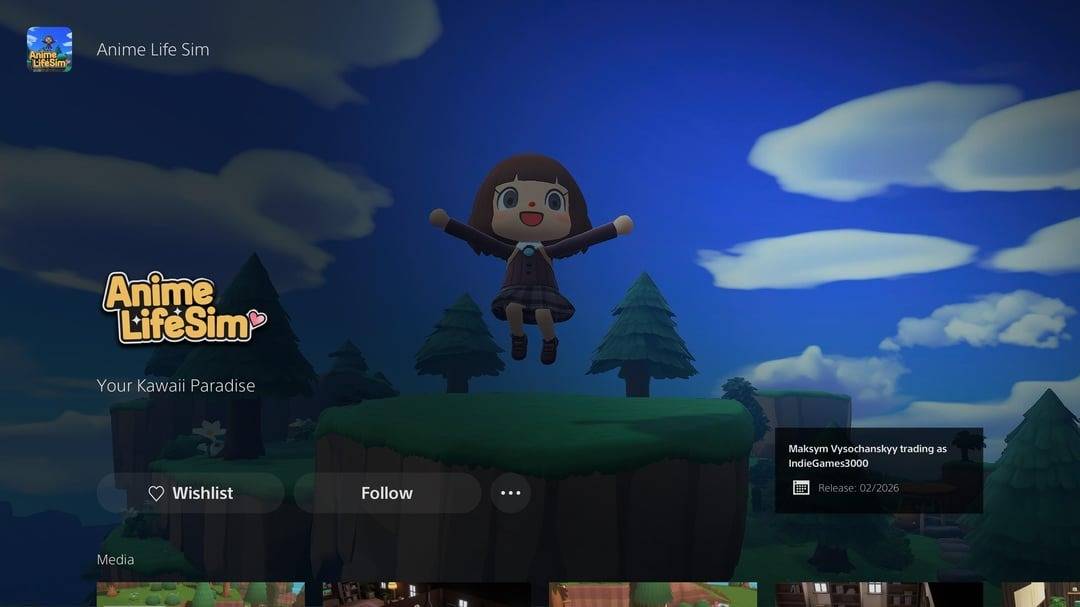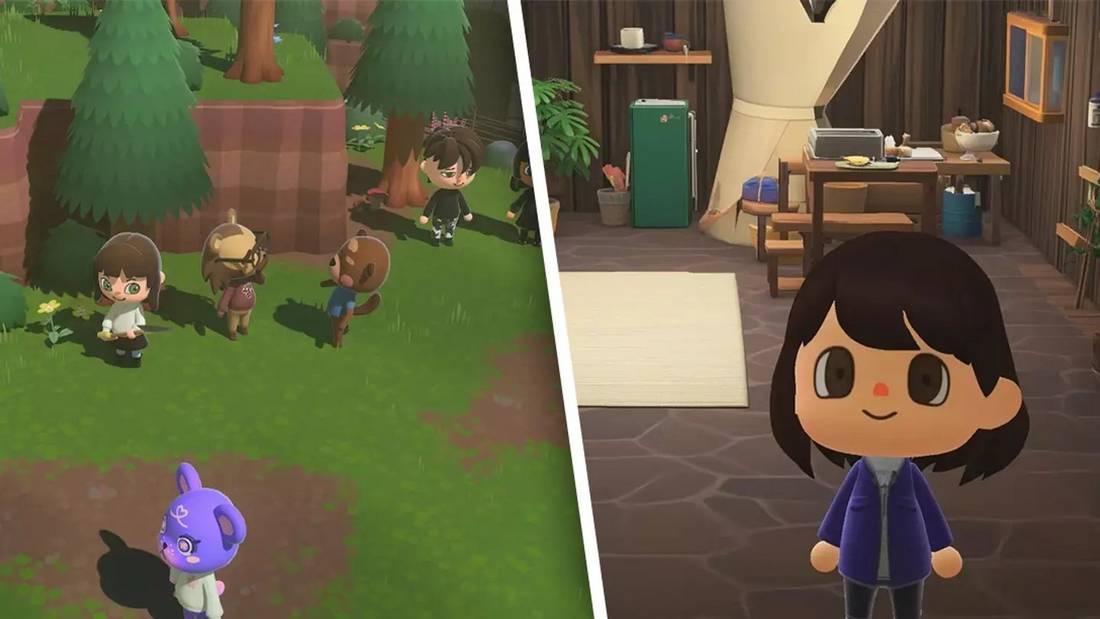News Alert: Another Alleged ‘Animal Crossing’ Clone Surfaces on PlayStation Store, Raising Serious IP Concerns
Popular Now
 Counter-Strike 2
Counter-Strike 2
 Roblox
Roblox
 FIFA 23
FIFA 23
 Black Myth: Wukong
Black Myth: Wukong
 Schedule I
Schedule I
 NBA 2K24
NBA 2K24
 Geometry Dash
Geometry Dash
 Rust
Rust
 EA SPORT FC 25
EA SPORT FC 25
 Candy Crush Saga
Candy Crush Saga 
A new title, “Anime Village Online,” has recently appeared on the PlayStation Store, immediately catching the attention of the gaming community—and potentially Nintendo’s legal team—due to its strikingly familiar art style and gameplay description. This marks the second time this year that a suspiciously Animal Crossing-like game has been listed on the platform, renewing the debate around intellectual property (IP) protection and the proliferation of “asset flip” games on major console marketplaces.
Anime Village Online: Details and Developer Controversy
The listing for Anime Village Online promises a “cozy life simulation game where you can create your dream village, decorate your home, and enjoy a peaceful world — all while playing solo or with friends online.” The core features listed, which include designing houses, crafting furniture, growing crops, and fishing, closely mirror the established and highly profitable mechanics of Nintendo’s cultural phenomenon, Animal Crossing: New Horizons. Furthermore, the promotional key art has been widely criticized by fans and critics alike for bearing an uncanny, near-identical resemblance to the visual aesthetic of the flagship Switch title.
- Developer and Publisher: The game is listed under the developer Wisnu Sudirman (or GamePoc, depending on the source) with a tentative release date set for 2027.
- Core Gameplay: Described as a life simulation, focusing on virtual economy, decorating, and social interaction, which are key drivers for high engagement and retention in the casual gaming market.
- Precedent: This follows the swift removal of a similar title, “Anime Life Sim,” earlier this year, which was reportedly found to be a straightforward asset flip using readily available Unreal Engine templates, highlighting a persistent issue in the digital distribution ecosystem.
The developer, when questioned about the similarities, has reportedly defended the game by emphasizing its focus on “online cooperative multiplayer” and “true cross-platform multiplayer,” suggesting these elements differentiate it significantly from the single-platform, single-player focus of the Nintendo franchise. However, for many observers, the visual resemblance and identical thematic pillars overshadow these distinctions.
 SEO Strategy: High CPC Keywords and Gaming Market Dynamics
SEO Strategy: High CPC Keywords and Gaming Market Dynamics
The current situation underscores a persistent tension in the multi-billion dollar gaming industry. While many legitimate developers create “cozy simulation” games inspired by classics like Stardew Valley and Harvest Moon, the recent spate of blatant clones attempts to leverage the organic search volume and high-value traffic generation associated with established, high-CPC keywords.
Keywords related to “Gaming Consoles”, “Gaming Laptop”, “Prebuilt Gaming PC”, and “Gaming Monitor” consistently show high cost-per-click (CPC) rates, suggesting strong advertiser interest in the gaming audience. By tying a product, even a dubious one, to the immense popularity of a phrase like “Animal Crossing on PS5,” the developers attempt to capture a portion of this valuable search traffic. This Search Engine Optimization (SEO) tactic, while controversial, highlights the lengths some developers will go to for visibility in a crowded marketplace.
Key SEO & Financial Terms:
- Intellectual Property (IP): The creative works or inventions for which a patent, copyright, or trademark has been secured, which Nintendo is highly protective of.
- Cost Per Click (CPC): A metric that measures the amount an advertiser pays for each click on their ad, often indicating the commercial value of a keyword.
- Digital Distribution: The method of delivering media content, such as games, without physical packaging, dominated by platforms like the PlayStation Store.
- Asset Flip: A game made primarily by buying and reusing pre-made assets, often resulting in low-quality or non-functional products.
Implications for the PlayStation Store and Consumers
The appearance and subsequent potential removal of such blatant imitations pose significant concerns for the integrity of Sony’s digital storefront. For PlayStation console owners, the risk of purchasing a low-effort, possibly non-functional game is real. This erosion of trust can negatively impact sales of legitimate indie games that genuinely innovate within the “cozy sim” or life-simulation genre, such as acclaimed titles like Disney Dreamlight Valley or My Time at Portia.
A proactive stance from Sony in its review and vetting process is critical. While democratizing game publishing is a benefit of digital platforms, a failure to police content that infringes on copyrights or misleads consumers undermines the platform’s value proposition. Industry analysts suggest that major platforms must implement more stringent AI-powered content review, especially for key art and description text, to combat the rise of these suspect listings that aim to game the system and siphon off potential game sales.
The Takeaway for Gamers:
Consumers interested in the life-sim genre on PS5 should exercise due diligence. Always check the developer’s history, read user reviews, and verify the authenticity of screenshots, particularly for titles leveraging highly popular and brand-recognized aesthetics. Spending on established, critically reviewed alternatives offers a much safer return on investment for your gaming hardware.










 SEO Strategy: High CPC Keywords and Gaming Market Dynamics
SEO Strategy: High CPC Keywords and Gaming Market Dynamics